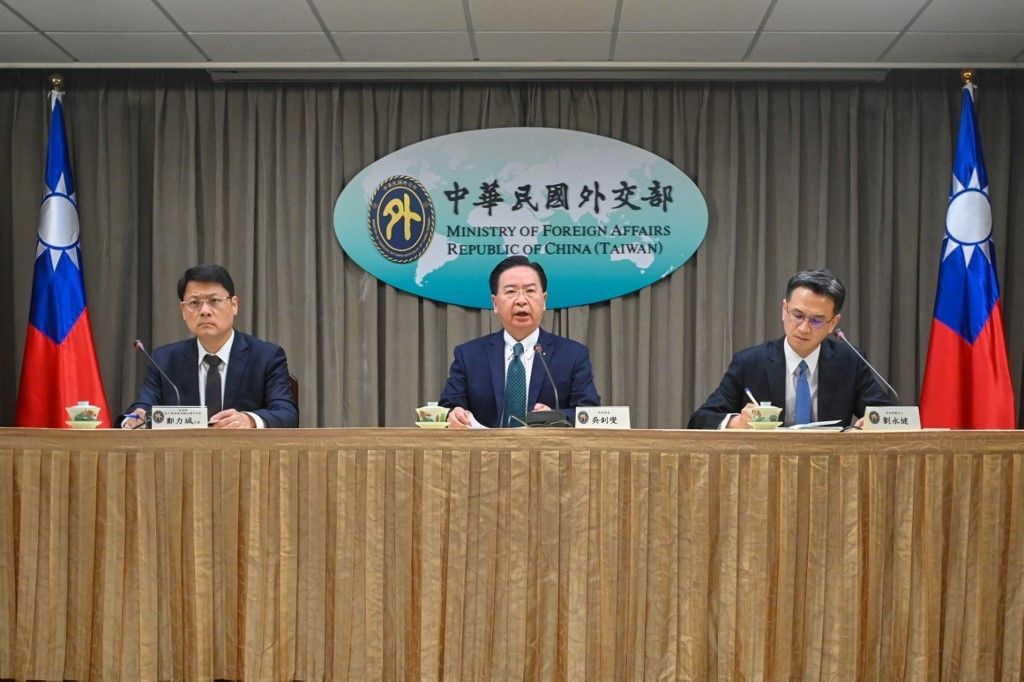Honduras and China establish diplomatic ties in blow to Taiwan

TAIPEI, Taiwan (Updated 12:21 p.m.) — China and Honduras began formal diplomatic relations on Sunday, with Taiwan accusing Beijing of using "coercion and intimidation" to lure away its few remaining allies.
China's announcement of the move came shortly after Tegucigalpa said it had officially severed ties with Taipei.
"China and Honduras just established diplomatic relations," tweeted Hua Chunying, a spokeswoman for the Chinese foreign ministry.
The switch, just days after Honduran Foreign Minister Enrique Reina visited Beijing, leaves Taiwan with just 13 countries that recognise it over China, having lost several Latin American allies in recent years.
China considers self-ruled, democratic Taiwan a part of its territory, to be retaken one day -- by force, if necessary. Under its 'One China' policy, it does not allow countries to recognise both Beijing and Taipei.
Earlier, Reina said that upon instructions from President Xiomara Castro he had "communicated to Taiwan the decision to cease diplomatic relations", a ministry statement said.
"The government of the Republic of Honduras recognises the existence of only one China in the world, and that the government of the People's Republic of China is the only legitimate government that represents all of China," the Honduras foreign ministry said.
"Taiwan is an inalienable part of Chinese territory."
Taiwan's President Tsai Ing-wen said the switch was "part of a series of China's coercion and intimidation".
"China has suppressed the international space of (Taiwan) for a long time, unilaterally endangering regional peace and stability," read a statement from her office.
'Pressure and intimidation'
Taiwan Foreign Minister Joseph Wu confirmed the severing of ties, accusing China of offering "financial incentives" to lure away the island's allies.
"After our negotiations with (Honduras) came to no avail we have decided to terminate diplomatic relations effective immediately to maintain our national sovereignty and dignity," he said. "We will end all cooperation projects and close our embassy."
Wu asserted Taiwan's established position of viewing itself as an "independent sovereign country".
"Our country will not succumb to the pressure and intimidation by the Chinese authoritarian government, and we will uphold the values of freedom and democracy," he said.
Earlier this month, Reina said economic necessity was behind his country's decision, and that the Honduran government had asked Taiwan to increase financial aid and "realign" $600 million in debt owed to Taipei.
Honduras is one of the poorest countries in its region, with almost 74 percent of its nearly 10 million people living in poverty. Tegucigalpa's move followed negotiations with China on building a hydroelectric dam.
Dwindling recognition
Latin America has been a key diplomatic battleground for China and Taiwan since the two split in 1949 after a civil war.
Honduras's announcement continues a trend in the region, with Nicaragua, El Salvador, Panama, the Dominican Republic and Costa Rica all switching diplomatic recognition to Beijing in recent years.
The United States remains Taiwan's most significant ally, and largest weapons supplier, despite having switched recognition to Beijing in 1979.
This week, Taiwan confirmed that President Tsai would later this month visit Guatemala and Belize -- two remaining diplomatic allies -- while also making stopovers in the United States.
Tsai will depart Taiwan on March 29 for the 10-day trip, stopping in New York and Los Angeles while en route to and from the Central American countries, according to the ministry.
- Latest
- Trending


































